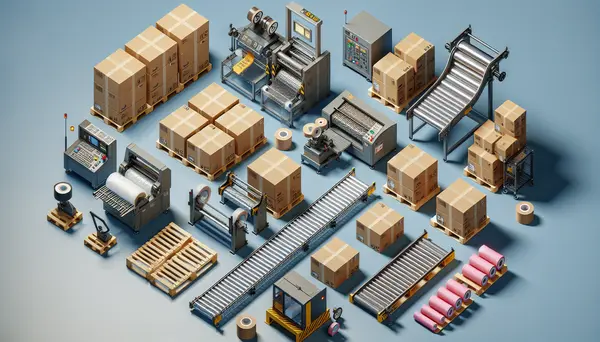Table of Contents:
Introduction
Packaging is an indispensable part of any industry, providing a protective shield for products during their journey from the production line to the hands of consumers. The industrial packaging sector, in particular, has evolved tremendously over the years, driven by changing consumer preferences, advancements in technology, and the increasing need for sustainable practices. This article explores the complex yet fascinating world of industrial packaging production, its various components, the process, and its integral role in modern manufacturing.
The Core of Industrial Packaging Production
Industrial packaging is unique due to its application across a broad spectrum of industries. From food and beverage, pharmaceuticals, to electronics and automotive components, packaging plays a pivotal role in ensuring product safety and enhancing shelf life.
The production process is a meticulous one, beginning with the design phase. It's here where considerations regarding the nature of the product, storage and transportation conditions, and user experience are made. Modern packaging design leverages computer-aided design (CAD) systems for precision and efficiency.
Once the design is finalised, it moves onto the manufacturing phase. This typically involves processes such as forming, cutting, folding, and sealing, which are performed on a variety of materials including plastics, metal, glass, or paper. Each material is chosen based on the product’s specific needs. For instance, pharmaceutical products often require sterile, airtight packaging to preserve their integrity, which may be achieved by using a particular kind of plastic or glass.
Pros and Cons of Industrial Packaging Production in Modern Manufacturing
| Pros | Cons |
|---|---|
| Facilitates scaled production | Can be resource-intensive |
| Enhances product protection | Potential for environmental impact |
| Standardizes product presentation | Less flexibility in design/customization |
| Optimizes product logistics | Requires significant initial investment |
| Promotes brand consistency | Potential for over-packaging |
Technological Innovations in Industrial Packaging Production
The advent of technology has undeniably revolutionised the landscape of packaging production. Automation, for instance, has streamlined the packaging process, ensuring consistency, reducing errors, and boosting productivity. Robotic technologies have been integrated into various stages of packaging, from picking and placing products to packing, palletizing, and wrapping.
Moreover, Industry 4.0 technologies, like the Internet of Things (IoT) and Artificial Intelligence (AI), are being deployed to foster predictive maintenance, real-time monitoring, and overall production optimization. Smart packaging solutions, embedded with sensors and digital identifiers, are also emerging, offering interactive user experiences and improved supply chain visibility.
Sustainability: A Growing Priority
As environmental consciousness grows worldwide, sustainable packaging has become a top priority in industrial packaging production. Manufacturers are transitioning towards renewable materials, lightweight packaging, and eco-friendly designs that reduce carbon footprint and encourage recycling.
Industry giants are investing in research and development to create innovative solutions such as biodegradable plastics, plant-based packaging materials, and reusable container systems. The goal is to achieve a circular economy model where packaging waste is minimized, and resources are efficiently used and recycled.
Conclusion
Industrial packaging production stands at the crossroads of innovation and tradition, integrating advanced technologies with long-established manufacturing practices. It is the silent hero in the lifecycle of a product, assuring safety, durability, and marketability.
As it moves forward, the industry is expected to continue embracing sustainability, automation, and smart technologies, thereby redefining the packaging landscape. The journey of a product from the factory to the consumer is indeed a testament to the remarkable world of industrial packaging production – a world that is constantly evolving, improving, and adapting to the changing times.
Understanding Industrial Packaging Production
What is industrial packaging production?
Industrial packaging involves the use of various materials and processes to create packaging for industrial products, which can range from small items like bolts and nuts to large machinery and equipment.
Why is industrial packaging important?
Industrial packaging is crucial as it protects goods during transit, ensures safe handling and storage, maintains product quality, and enhances efficiency.
What materials are used in industrial packaging?
Materials used in industrial packaging can include plastic, steel, aluminum, wood, and corrugated fiberboard, among other things.
How does industrial packaging support modern manufacturing?
Industrial packaging supports modern manufacturing by enabling the safe and efficient transportation of products, reducing waste, and enhancing product presentation and marketing.
What are some future trends in industrial packaging?
Some future trends in industrial packaging include increased use of sustainable materials, automation in packaging processes, and smart packaging solutions that incorporate technology for improved efficiency and tracking.






